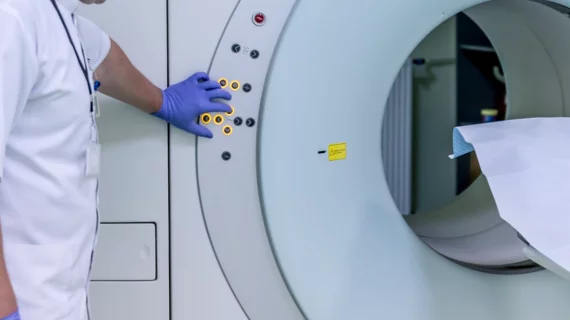VA clinicians order fewer inappropriate MRIs for lower back pain compared to most
U.S. clinicians routinely order inappropriate MRI scans for lower back pain, resulting in wasted resources and excess costs. But that doesn’t appear to be the case in the Department of Veterans Affairs health system.
That’s according to new research analyzing more than 1 million visits across over 900 VA primary care sites, published Monday in JAMA Network Open. Such clinics performed imaging within the first six weeks of pain—considered early and not in-line with consensus recommendations—far less often than most physicians.
“The VA primary care clinicians appear to be more concordant with published practice guidelines for imaging low back pain than other U.S. clinicians,” Paul G. Barnett, PhD, with VA Palo Alto Health Care System in California, and colleagues wrote.
The researchers suggested this may be because VA clinicians are salaried, while other physicians may have an economic incentive to order scans. Barnett et al. also pointed out that a number of VA sites routinely review advanced imaging orders, and many have less capacity to perform MRIs in general.
An estimated 26% to 44% of MRI scans performed for lumbar spine pain do not abide by joint guidelines from the American College of Physicians and the American Pain Society. And the authors of this study hypothesized that VA clinics would be just as guilty as other areas of the healthcare system.
But that proved not to be the case after they retrospectively looked at 1,285,405 new episodes of low back pain from more than 920,000 patients. Barnett et al. found that 2.42% of these individuals received early scans within the first six weeks of their pain, compared to the 4.2% in a comparative study of U.S. patients with commercial insurance.
The authors did set out to identify clinicians most in need of interventions to bring down over-imaging, but the low number of MRIs performed at VA centers overall made that difficult to pinpoint.
“Interventions to improve concordance may be unneeded, given the low utilization of early MRI scans for low back pain in VA,” the group concluded.

